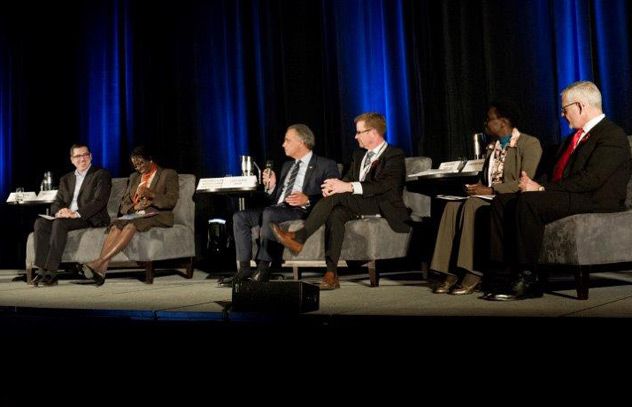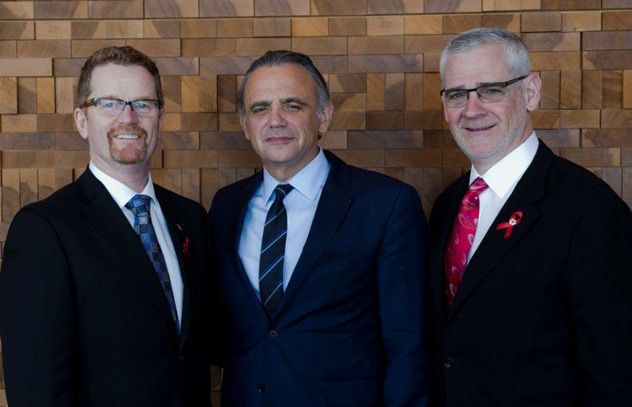

Participants during the HIV treatment meeting.

Terry Lake, British Columbia Health Minister, Luiz Loures, UNAIDS Deputy Executive Director and Julio Montaner, Director of the British Columbia Centre for Excellence in HIV/AIDS during the HIV treatment meeting.
Update
Experts call for accelerating progress towards universal HIV treatment access
03 April 2014
03 April 2014 03 April 2014Scientific experts from 41 countries have gathered in Vancouver, Canada for a four-day meeting to examine the latest evidence regarding the prevention benefits of antiretroviral therapy. The meeting also focused on developing new targets to end the AIDS epidemic, including a commitment to bring HIV treatment to all people who are eligible.
Citing both the therapeutic and preventive benefits of antiretroviral treatment, participants emphasized that available evidence justifies a rapid implementation of the World Health Organization’s 2013 consolidated guidelines on the use of antiretroviral drugs for treating and preventing HIV infection —which markedly expands the number of people living with HIV who are eligible for antiretroviral therapy.
Vancouver’s proactive scale-up and innovative service delivery of HIV testing and treatment was hailed as a reference of the cost-benefits of HIV treatment expansion. Its approach is now being emulated in countries and localities worldwide as a successful model in the AIDS response.
Participants stressed the importance of removing all forms of punitive legal and policy frameworks that deter people from seeking health services in order to leave no one behind. They emphasized that community leadership and engagement are still vital elements of long-term success. Grenada’s Minister of Health Clarice Modeste-Curwen led a call for renewed global solidarity to mobilize sufficient resources to finance rapid HIV treatment scale-up.
The meeting was co-convened by the British Columbia Centre for Excellence in HIV/AIDS and UNAIDS, and included participation from UNAIDS cosponsors leading on HIV treatment including WHO and UNICEF.
Quotes
“Look at the evidence and the economics.”
“Seeing what the epidemic was like years ago, I never thought in my lifetime we would be speaking about the possibility to end the AIDS epidemic. However, there is still uneven access to HIV services especially among key populations. We need to better understand and act on local epidemics and this is much easier to do if we bring services closer to communities and to people.”
“There is often lip service about community systems strengthening; however the money is not trickling down to the community.”
“Finally there is a consensus emerging that the science clearly demonstrates HIV treatment is highly effective in stopping transmission in all contexts.”



